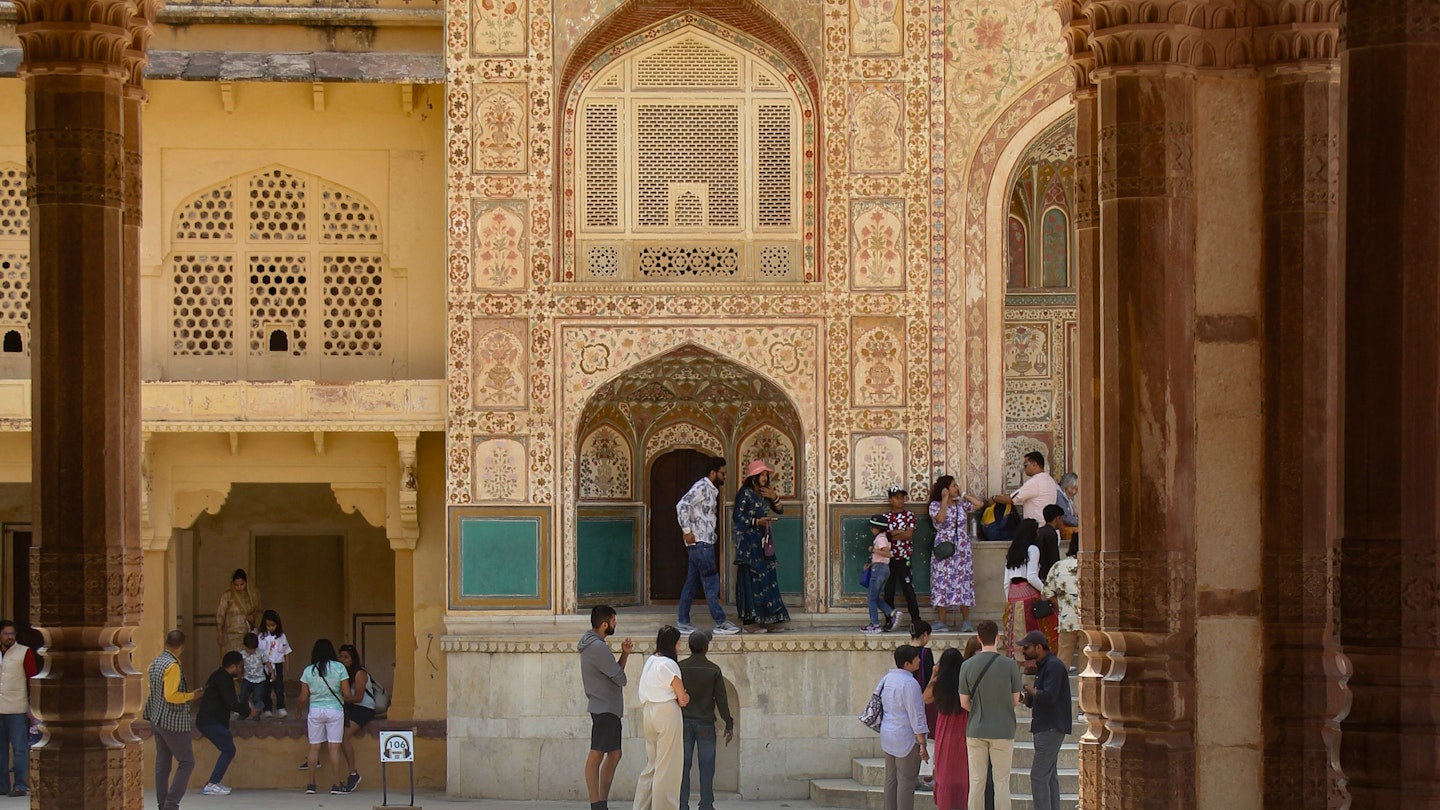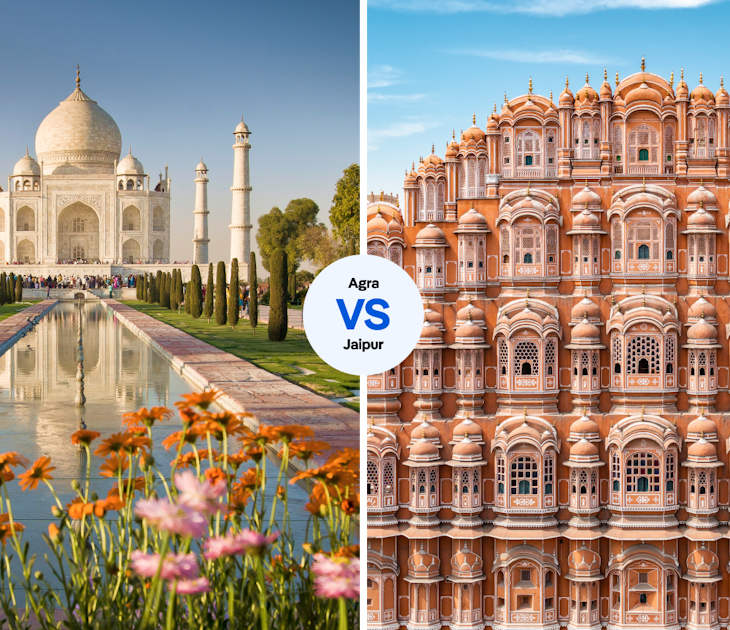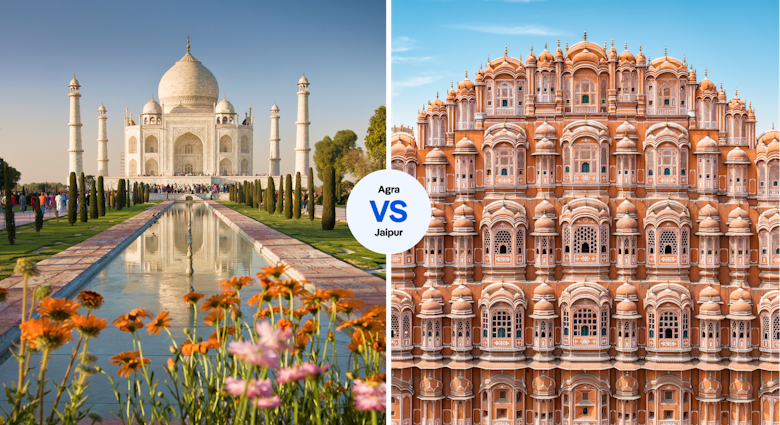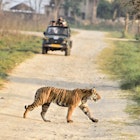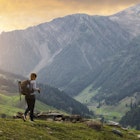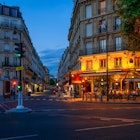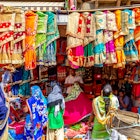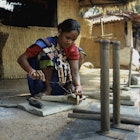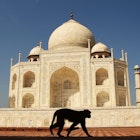Lonely Planet editor Akanksha Singh traveled to Jaipur to experience its history and culture. Here, she shares some tips and insights for anyone planning a similar trip.
Road trips to Jaipur were a key part of my childhood in India. Before we left India, my parents would drive my sister and I over from Delhi on long weekends. We’d spent our time visiting local sights, stopping at streetside kathputli (puppet) shows, eating local food, and listening to ek tara, single-stringed instruments, played with a bow.
Some 20 years later, the familiar sight of the red-, pink- and honey-hued forts never fails to amaze me. People say India’s Golden Triangle – Jaipur-Delhi-Agra – is a sensory overload. And it definitely is for people who haven’t traveled through pockets of Asia. Dubbed the “Pink City” after its pink paint-slicked walls that are lined with shops, this trip to Jaipur took me deeper into the historic town's chaotic bylanes and beyond the city’s outskirts.
Agra vs Jaipur: which Indian city is best?
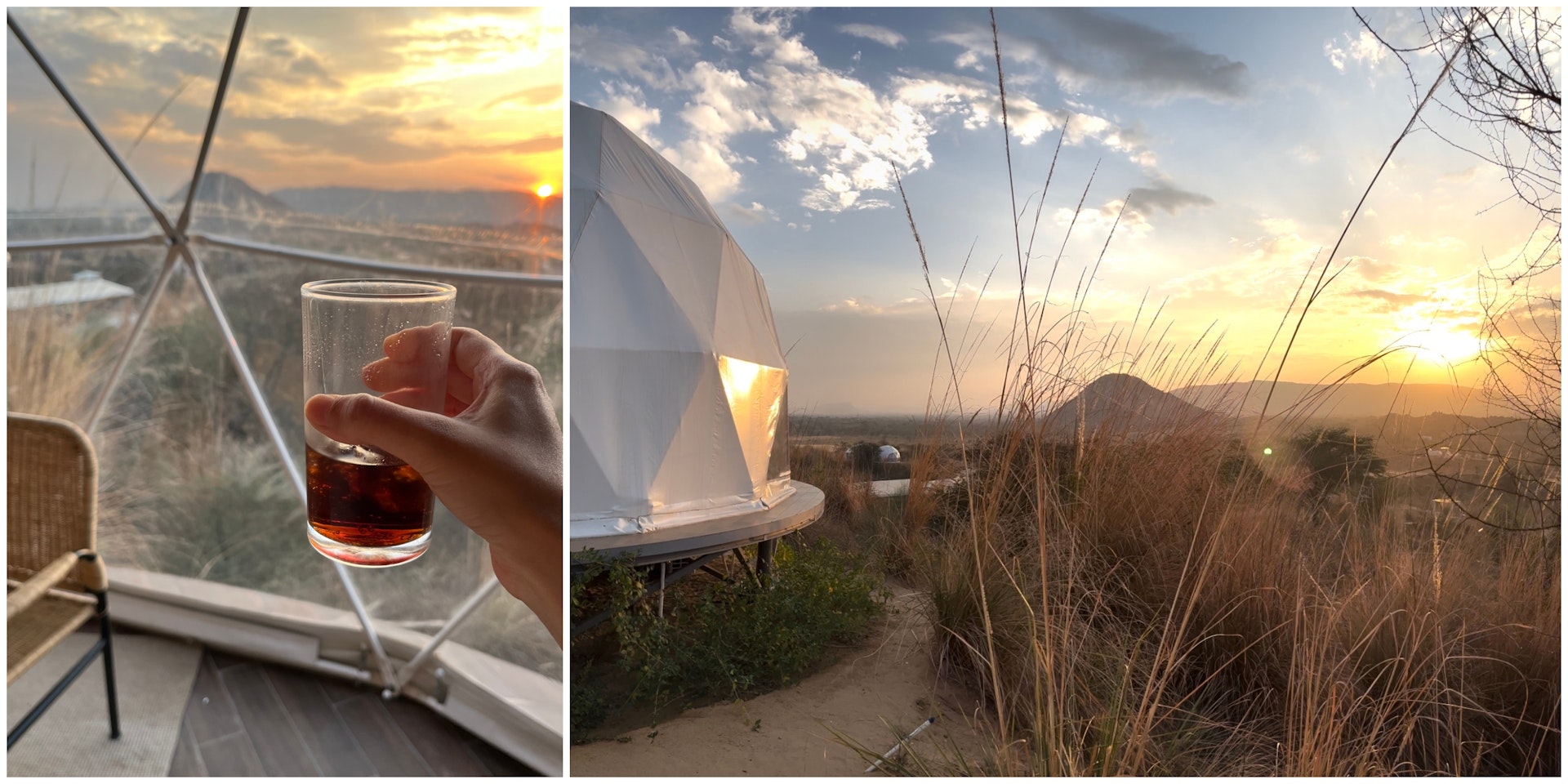
Where did you stay? What was the vibe?
I stayed at Teela the Glamping Resort in Achrol, a village an hour outside Jaipur. I’ve never “glamped” before (I studied geology at university; camping’s more my thing) but I enjoyed the novelty of the experience. It’s really no different from staying in a swish five-star hotel but in a “Moon Dome” – a geodesic tent – with stellar views of the desert, complete with raw dunes, tiny bulbuls and larks twittering away outside your door.
There’s a single restaurant, Rait, on the premises (food was good; I’d recommend the Indian menu over the continental spread) and Teela does offer hotplates and a mini kitchenette setup for long-term guests. However, I did make the mistake of thinking breakfast would be most enjoyable al fresco (it was – for all of two minutes) until I realized that gritty stuff caught in my teeth was indeed sand in my aloo paratha (potato-filled flatbread).
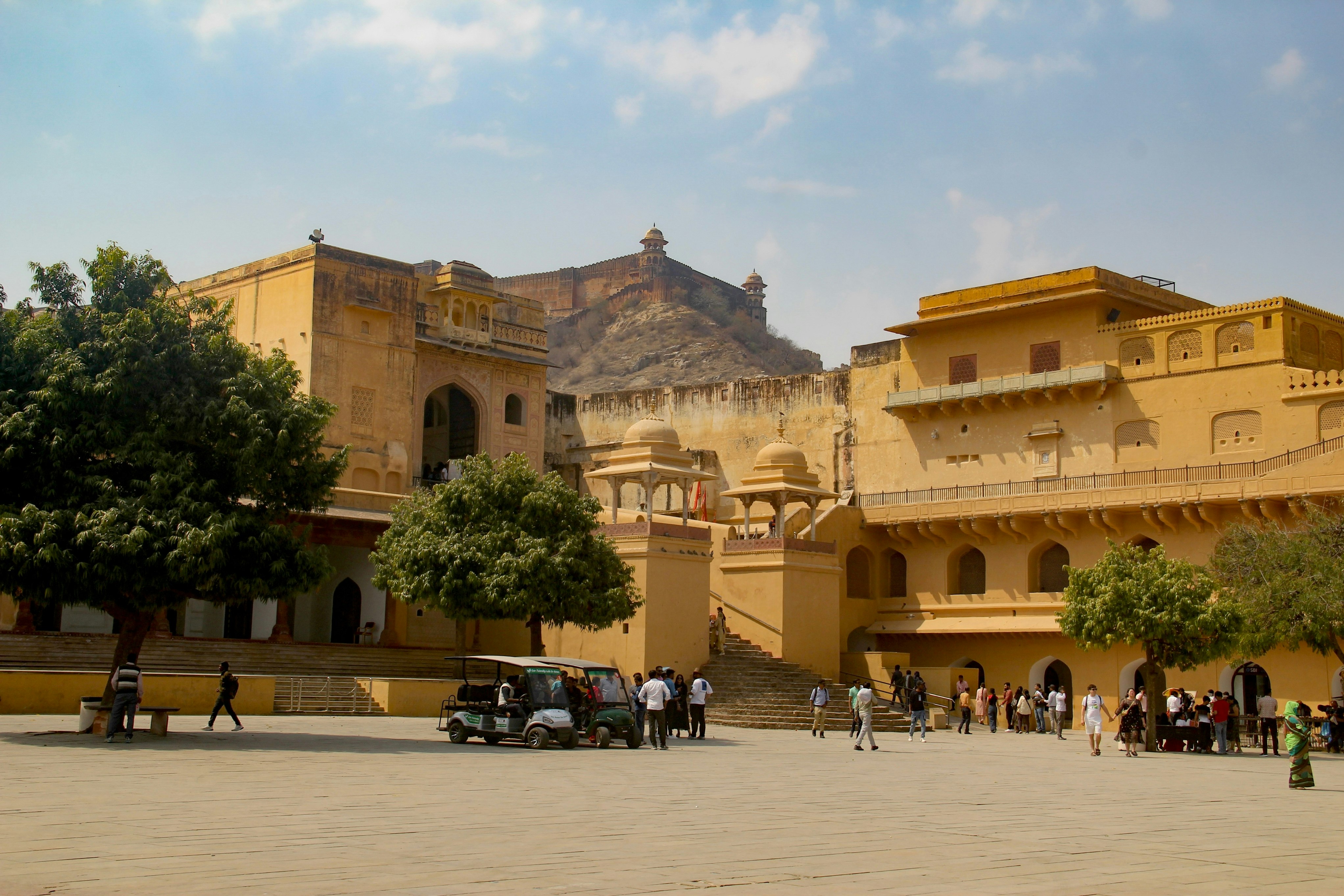
What was the most touristy thing you did?
I did so much touristy sightseeing on this trip and, since it’d been a while since I’d seen the highlights, I regret none of it! I toured Amber Fort, with its extravagant chambers and geometrically charged gardens, took photos of the iconic red-and-pink-latticed Hawa Mahal and visited the City Palace, which is still home to Jaipur’s royal family.
Built in the 18th century, the City Palace’s four gates – in an inner courtyard named Pritam Niwas Chowk (“beloved’s courtyard”) – are an artistic obsession of mine. Each “gate” is an extravagantly designed door, themed against a season and dedicated to a Hindu deity. If I’m being honest here, the most touristy thing I did was take an Instagram-esque video of a journal with the Lehariya Gate or Green Gate (which represents spring) on its cover with the gate in the background. The gate is spectacular: glossy forest green tiles frame an ornate, heavy golden door in a cinquefoil arch.
For those less obsessed with gloriously designed doors, the City Palace has much more to offer, including a museum and a splendid blue room (Chhavi Niwas), and parts of the royal wing are open to the public too. Plus, it’s right by Jantar Mantar – an 18th century observatory that’s a UNESCO site built by Jai Singh II, a king fascinated by astronomy. (Bonus tip: buy a composite ticket to skip queues and hit up all of Jaipur’s attractions.)
Looking for souvenirs from your trip? Explore our guide to Jaipur in 5 Shops
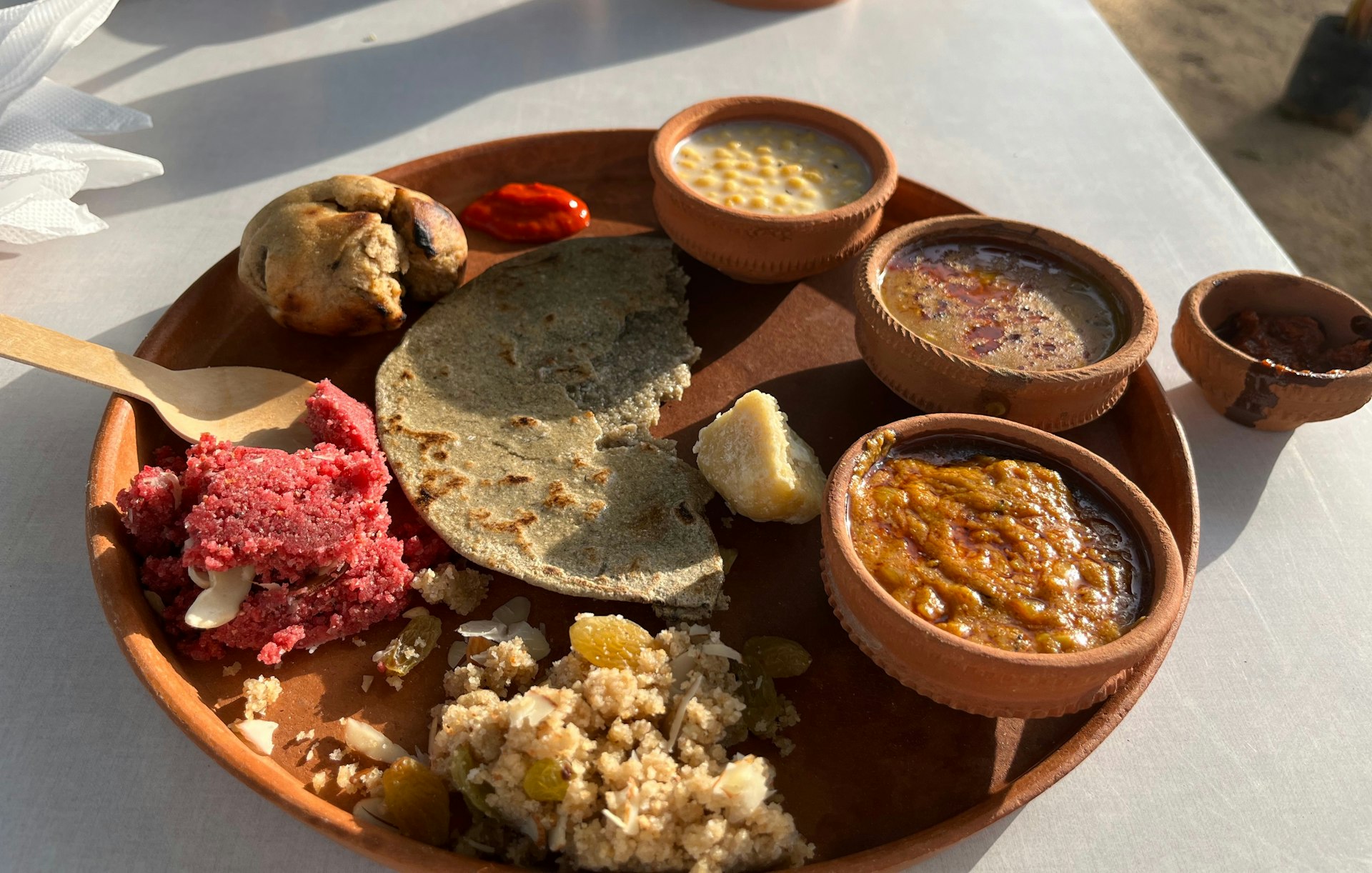
What was the best thing you ate?
Jaipur has an impossibly good selection of food, and I’m one of those people who plans their days around meals, especially when I’m traveling. If I had to choose, my favorite meal would be the Rajasthani thali (plate meal) at Kuchali Mud House, a quaint, family-run establishment in Chak Charanwas, a village roughly an hour outside Jaipur city.
Most Rajasthani thali meals boast a combination of dhal, baati, churma – baati is a crusted unleavened bread that’s softened with melted ghee (ideal for the once nomadic desert folk) and churma is crushed, sweetened baati, dressed with nuts and dry fruit. However, the fragrant gulab (rose) churma – cerise and topped with slivered almonds – was new to me and delicious.
There’s a common belief in these parts that food cooked on a chulha (wood-burning stove), with freshly milled flours and freshly milked dairy is superior to their contemporary counterparts, and I have to agree. I have a reasonable spice tolerance, but those who aren’t as keen on heat are requested to call ahead to communicate this along with any other dietary restrictions. For a good Rajasthani laal maas (literally “red meat”), a decadent goat meat curry (with adjustable spice levels), try rait.
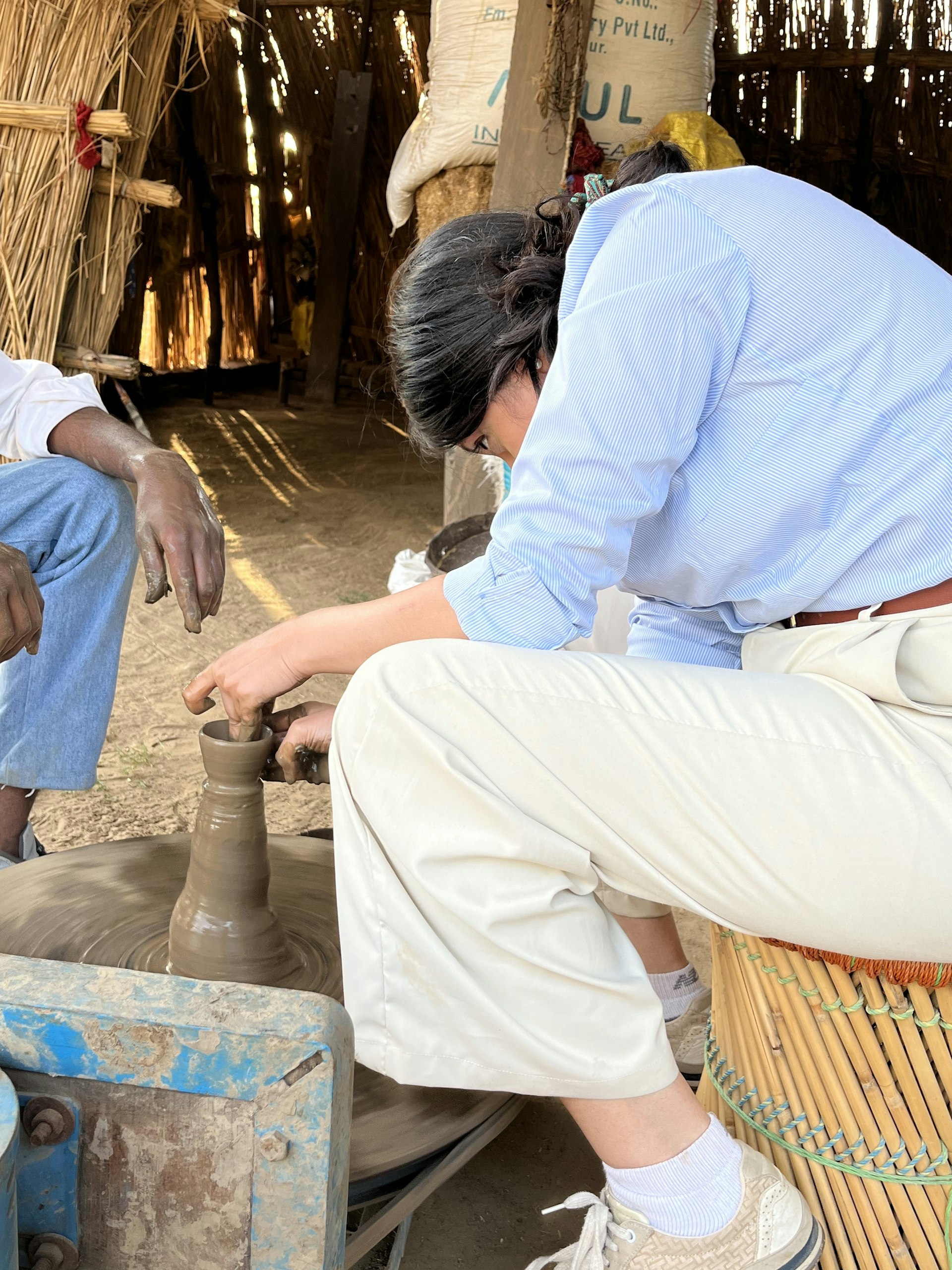
What was the most under-the-radar activity you enjoyed?
I rode ATVs and went paintballing at Motosport Park (both are a combined ₹1700), but visiting a pottery community in Chak Charanwas (organized by the Kuchali Mud House) was the highlight of my trip. Jaipur is famous for its pottery with a cobalt blue glaze, which is Turko-Persian in origin. However, I got to throw tiny forms on a potter’s wheel with locally-sourced clay. I’m a hobby ceramist, so learning from experienced potters was an absolute boon.
Pottery is still largely a caste-based profession in India (which means it’s not usually a profession people get to choose, but are born and forced into). So, it was refreshing to see a thriving enterprise run by people who now also supply their terracotta pottery to big hotel groups in addition to selling it to visitors. They make everything from vases and diyas (lamps) to screw-top water bottles and sculptures.
What was the handiest thing you packed?
Layers and linens. I traveled in early March, when days are sweltering but evenings – particularly if you’re set up outside the city in the desert like I was – can get a little nippy. One thing I noticed about the rooms at Teela were that they had both ACs and radiators to bridge the change in seasons. Overall, light layers to wear over linen clothes and sun protection are essential.
It’s also hugely important to stay hydrated in the sun; I packed a reusable water bottle to cut down on my plastic waste. Most resorts and restaurants will refill your water bottle with filtered water on request (add chlorine pills if you need to be extra careful).
Also, the midday sun often results in phones overheating, so it’s probably worthwhile investing in a phone cooler, particularly if you plan on taking a ton of photos and videos.
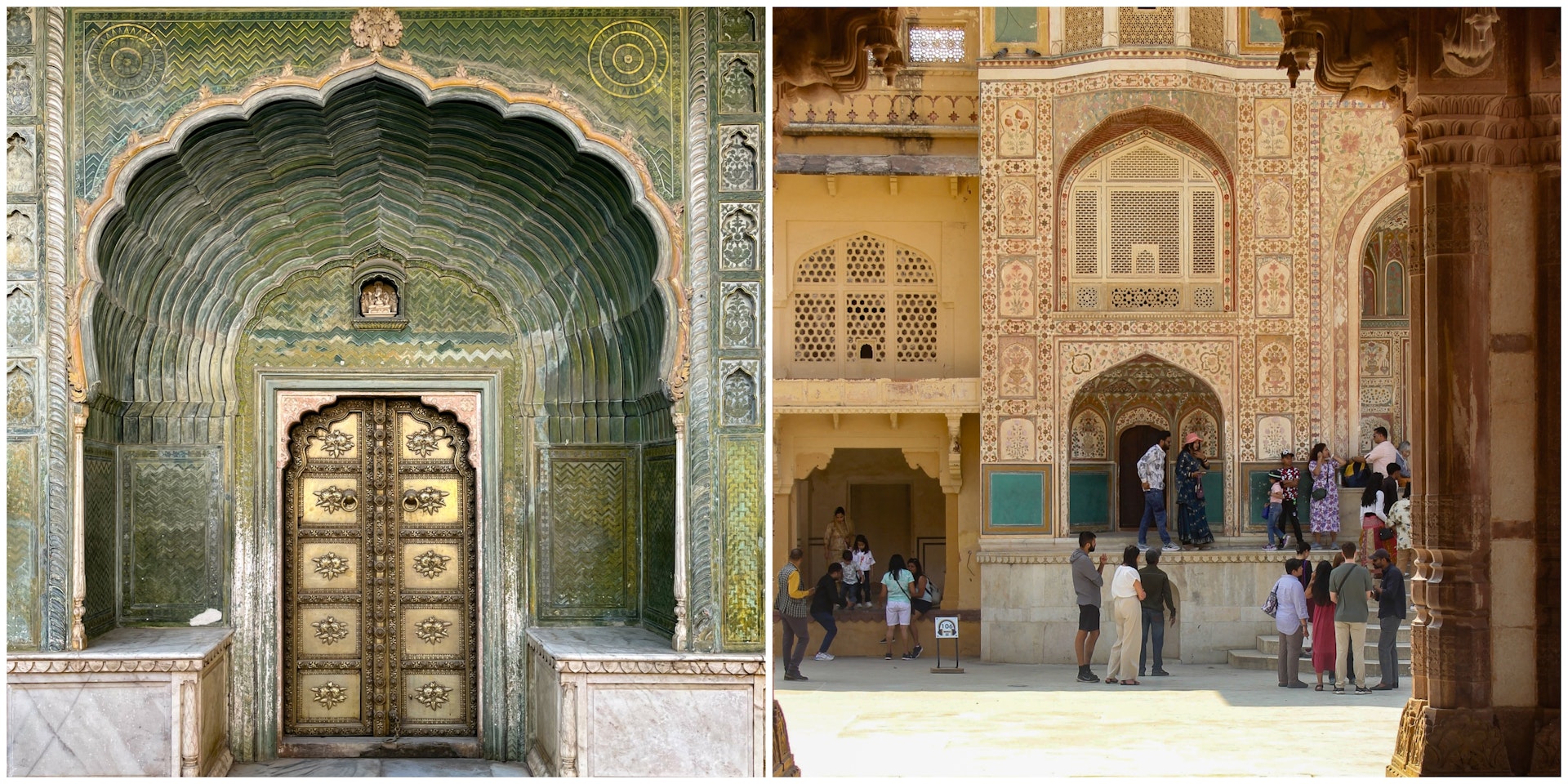
Best tip for someone who wants to plan the same trip?
Many tourist spots in Jaipur frequently close for filming and there’s no way of finding out whether a certain attraction is closed for a shoot until you’re on the premises (calling ahead doesn’t always work). Leave plenty of time for sightseeing with the aim of revisiting popular sights if they’re closed.
Also, while there are a few cafes dotted around the city, chai is the caffeinated beverage of choice in these parts. So, if you’re anything like me, you’ll want to pack a cafetiere.
Akanksha traveled to Jaipur with the support of Teela. Lonely Planet staff do not accept freebies in exchange for positive coverage.

